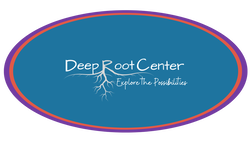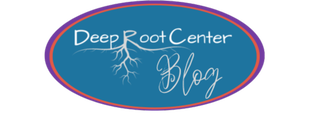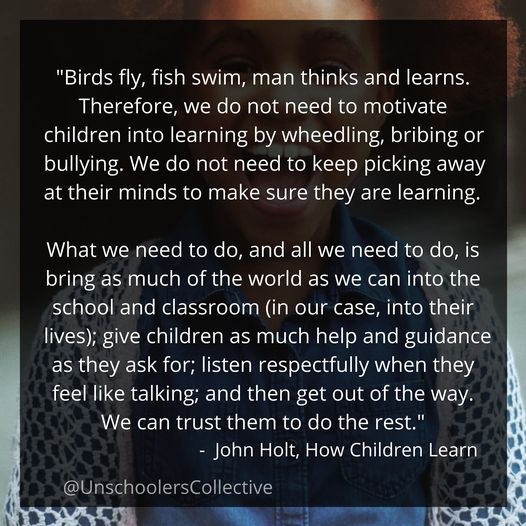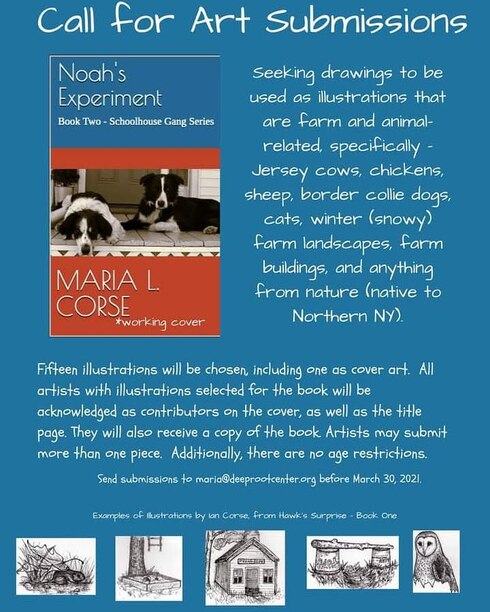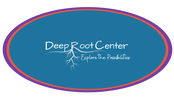|
I would surmise that you didn't just learn one thing - and probably gained knowledge that you didn't even realize you had. This is because there are a few absolute truths about learning that we have negated on a societal level: 1) Learning is natural - every one of us is born with innate curiosity and the desire to explore and discover things about ourselves and the wider world. In the first year of your life, you mastered more than you will during the remainder of your entire life. No one explicitly taught (or forced) you to suckle, track objects, grasp, smile, giggle, make word-like sounds, rollover, scooch and crawl, walk, or talk. The adults in your life were there to support you and provide the resources you needed to survive and thrive. There is no reason your inherent impetus to learn will disappear in your lifetime. 2) Personal interest is the driver behind every bit of knowledge you acquire. Authentic understanding is held deeply within you - not something you memorized long enough to regurgitate the info onto an examination paper and proceed to forget. This concept came up last evening when I mentioned the ship currently stuck in the Suez Canal. I have a general idea of where it is in the world but couldn't pinpoint it to say what bodies of water it connects. Whereas Mike, my husband, could tell you the coordinates. (Well, maybe not precisely, but you get the idea.) Mike has always had a keen interest in maps and geography. He, quite literally, asked for an atlas for his 9th birthday. I, on the other hand, worked hard to memorize world maps in ninth-grade social studies. I still remember the pain of writing the names of each country and body of water in the Middle East on the stack of printed maps that I carried around in my notebook. Yes, I retained each one long enough to get the high 90s on each of the map tests, but today struggle to pull up a mental picture of each section of the world. But yet, I took osteology as an elective for my Anthropology degree - and, for the most part, still know the names of all the bones and where they are in the human body. 3) Playing is the best way to learn - anything! On the most basic level, humans seek out pleasure. Neuroscientists will tell you the names of all the chemicals released in our brains when engaged, connected, happy, content, and captivated by something. They can also name the adverse cocktail delivered to our nervous systems that shuts the learning process down when coerced or fearful. I intentionally use the word "play" when I describe anything I do - partly to normalize the concept of enjoying the learning process. But, I also use it to describe how I feel while I am figuring out something new. Having fun does not take away the difficulty, rigor, or grit. It permits us to make mistakes, get messy, flounder, pause, reassess, and decide whether or not to resume. It allows for exploration and self-discovery. We are culturally confused to believe that learning is represented by the final product when in actuality, it is all about the process. There may not be something tangible to hold up at the end - it could be the feeling of satisfaction or, even, the realization that it isn't something you want to pursue. I'll ask again - what did you learn today? Now think of the things you did naturally without thinking about them, explored because you were interested, and the knowledge you acquired as muscle memory because you played, practiced, and had fun. DRC News Deep Root Center has openings at both of our Centers for next year. Please get in touch or visit our website to learn more. I am still accepting illustrations for my second book - Noah's Experiment. If you would like to submit drawings, paintings, etchings, etc., please send them to me here. Comments are closed.
|
|
© 2024 Whole Learners, Inc. 501(c)3
Deep Root Center
48 Riverside Drive, Canton, NY 13617
315*323*1435/[email protected]
Deep Root Center
48 Riverside Drive, Canton, NY 13617
315*323*1435/[email protected]
